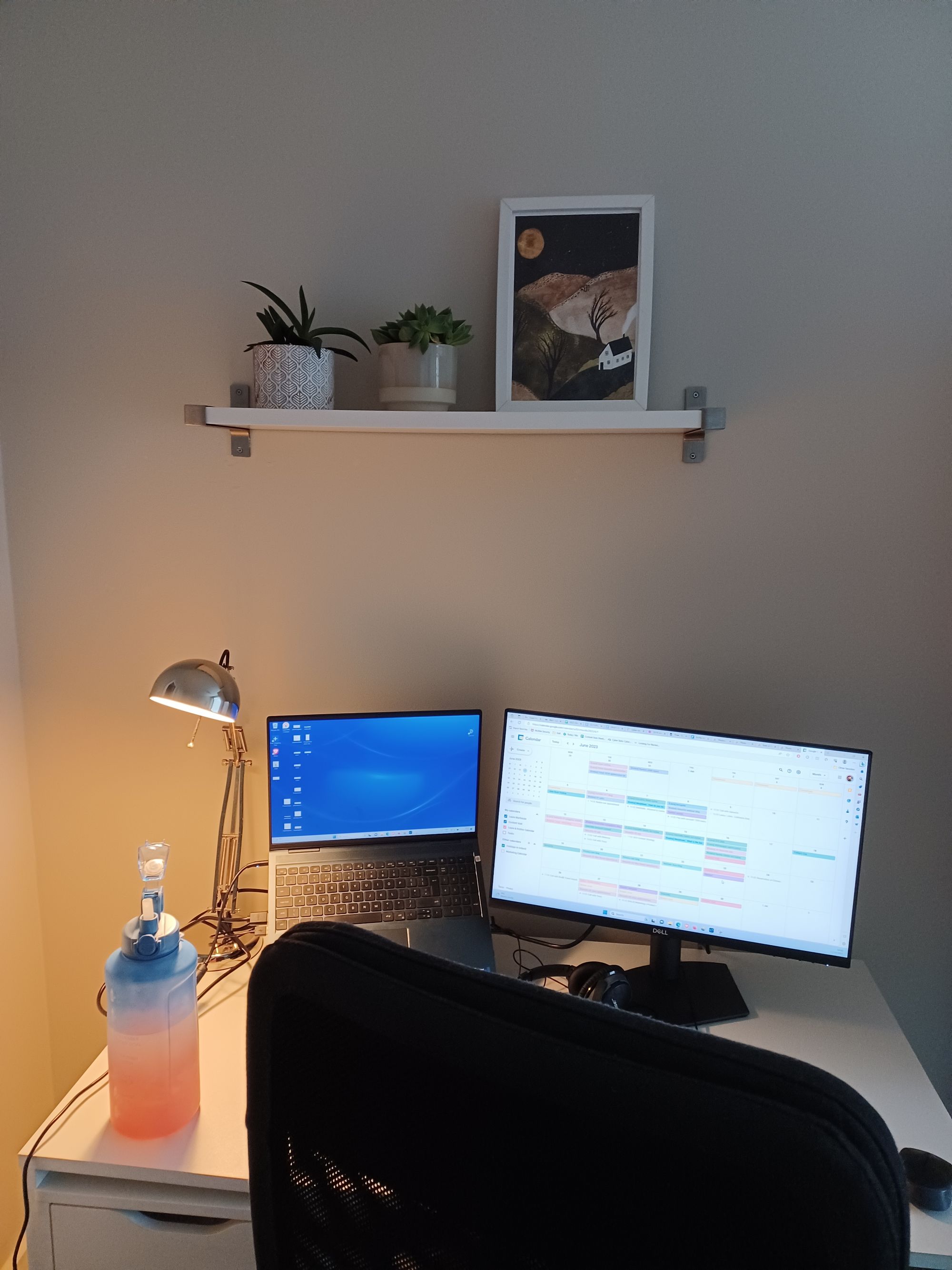
How I've Grown To 6 Figures In 3+ Years As A Content Agency Owner
Here are five lessons Laura Martisiute learned along the path of small business ownership
B2B Content Marketer
I never thought I’d own a business. I also never thought I’d be able to make a living from writing.
Yet here I am, with a (small) content marketing agency, selling services to companies, including series A startups and tech enterprises, and making a six-figure dollar income each year.
All this because I stumbled onto writing for a living accidentally.
Back in 2015, I was in college and needed a job, but the market was tough, and no one was hiring. One day, I typed into Google “get paid to write” and stumbled on an ad for a site that paid writers $100 for accepted pitches about interesting topics.
When I told my parents I got paid $100 for writing an article online, they were amazed. So was I.
After graduating, I worked in various B2C marketing roles with tourism companies and heritage sites, which meant working alongside digital marketing agencies. I also kept writing, mostly for affiliate marketing agencies, as a side hustle.
But, during my day job, I noticed that quality content (blogs and web copy readers would actually engage with) was missing from most service offerings.
Agencies that were good at providing technical assistance or managing paid channels left clients, like my employers and other businesses we worked with, hanging when it came to content strategy and development.
I kept seeing content being tacked onto a marketing package as an afterthought, something that was typically outsourced to freelancers of variable quality or left up to internal teams that needed more capacity or expertise to deliver results.
This felt like a missed opportunity. After all, most leads consume three to four pieces of content from a vendor before engaging with their sales team.
When I started looking at other businesses' content marketing efforts online, I saw that subpar content seemed to be the norm rather than the exception. In 2020, with the tourism space suffering its worst crisis ever, I decided to start an agency dedicated to fixing that.

Last year, my business made just under $150,000 gross profit after paying its two employees (including me).
Here are five lessons I learned along the way that I wish I had known sooner.
Figure out the nexus between your customers' needs and those of your own
When I started Content Visit in March 2020, I sold individual content assets (blogs, case studies, whitepapers) to companies in the SaaS space by reaching out to recently funded companies directly.
This was a great initial confidence boost - I couldn’t believe some very serious companies across the Atlantic were paying me to write blog posts for them.
At the same time, offering ad-hoc content assets also meant that:
- I never knew what to expect month to month or even week to week.
- I did not help clients move toward their own revenue goals.
What typically happened was that I would end up overburdened with work and unable to meet content goals. Or I would end up with a lot of free time and no revenue.
This kind of “feast or famine” mentality is not unusual in the freelancing world, but it doesn’t have to be that way.
I knew that I needed a more predictable revenue. Fortunately, that also tied in with clients needing a long-term commitment to high-quality content strategy and production that could scale.
After talking to prospective customers, I realized that most clients weren’t just looking for blog posts but other content assets that supported their marketing goals, like whitepapers, sales one-pagers, PPC ad copy, and even SEO strategy.
They needed regular work, and I could book them in for retainers.
Profitability for me in the three and a half years since then has depended on keeping this fact in mind. No matter how much someone pays for a one-off service, it's better to hold off until you find a client who has a regular monthly need and is willing to pay to fill it.
Charge a fair rate (for you)
Asking for more money is always really scary. It’s also really, really necessary. That’s because if you work for yourself, no one is going to offer you a raise, so you need to do it yourself.
Make sure your pricing takes into account inflation and/or the value you provide clients, as well as changing market conditions. I like to periodically check out my competitors’ pricing to make sure I’m not over or under-charging.
One of my biggest fears has always been that if I tried to raise my prices, my clients would just find someone else. That’s unlikely to happen. The worst that can happen is they say they don’t have the budget. More than likely, they will agree to a pay increase, although it probably won’t be the amount you’re quoting. Be ready to negotiate.
Don’t neglect your own business.
It’s not a good look if the cobbler's children go barefoot.
A generic piece of advice to business owners is to “work on the business, not just in it.” I knew this before I started my content agency, but I quickly forgot it. It ended up being a big mistake.
Anyone in a professional service business must remember that clients won’t stay with you forever, no matter how good you are. Markets shift, people leave, and business priorities change. You need a way to fill the space they left when they go.
Before, I used to just work on my clients’ needs. And this was totally fine when things were good. But then a client would unexpectedly leave, and I was suddenly down in revenue. Sometimes, a lot.

When this happened, I would frantically turn to cold outreach. While cold outreach works, it’s hard, and you’ll always be in a position of weakness.
Since then, I have built up a referral network, and I am working more actively on my own website’s SEO. I have also recently started posting more on LinkedIn and plan to begin experimenting with ads.
This is what you really want - people coming to you, even when you are too busy to actually work with them.
Break your own rules when looking out for your clients
Sometimes, you also have to go (slightly) against what the client is saying and give them suggestions of what might work better - even if it means going counter to your own immediate financial interest.
For example, a client may want to write 20 blog posts per month to increase traffic. But looking at their industry, creating less but more valuable content might be a better approach. Or they may say they want a whitepaper. But, after talking to them, you realize that they don’t actually need it.
The client may not always agree; at the end of the day, my job is to get them what they think they need. Still, I have found that looking out for them in this way is a strong driver of trust and referral.
Take care of yourself
No matter how much you outsource or expand your business, you will still be the most important part of your operation for a long time. Because of this, you need to treat yourself like a business asset. You need to rest.

I personally haven’t nailed this one down yet, but I have gotten much better over the years. I’m no longer working on weekends or late into the evening (unless it’s an emergency), and I have recently made it a rule to never check my emails past 8 p.m. I am also getting somewhat better at taking time off.
Simple steps that helped me to draw more clear boundaries between work and life were:
- Letting people know ahead of time when I’ll be away (you can take a holiday - your clients will probably not replace you just because you’re gone for a week or two).
- Scheduling slack time in Google Calendar (or equivalent) for inevitable project overruns.
- Reflecting on wins and losses in a constructive way (just because a project doesn’t go as planned or a piece of content is criticized doesn’t mean you’re a failure and should find another job).
One final tip: For whatever reason, not all clients are going to be a good fit. If you find the work really hard and unmotivating or the client is making you feel like you need to reconsider your career, don’t try to stick it out. You won’t be doing favors to anyone. Instead, (try to) end it on a good note and move on.
Conclusion
I ruined my life (or at least my career).
I make a good living by helping companies boost their revenue with content marketing online. Even in the age of AI (which is an awesome tool), I still provide a strong value-added service to half a dozen clients across the US and Europe.
But I continue to spend far too much time thinking about work, looking for new business, and researching the market. Although my work-life balance is improving, being a remote business owner in a service sector is probably the least glamorous, most isolating way to make a living.
People thrive in teams, remote or not, which is why I now work alongside another person. Even for a card-carrying introvert like me, I can vouch for the fact that working alone is not good for your mental health.
But growing a business, even a micro one like mine, is one of the most rewarding things I’ve ever done.
When I visited Morocco recently, I heard someone say it’s better to make one dirham on your own than 10 through someone else. I don’t think that’s quite true, but it's close enough to the point.
Try Buffer for free
140,000+ small businesses like yours use Buffer to build their brand on social media every month
Get started nowRelated Articles

Sending ads by mail may seem like a thing of the past, but this marketer thinks it’s a surprisingly effective approach for e-commerce brands.

In this article, get answers to questions about social media for solopreneurs.

Earth Day is one of the (many) days when businesses can create or reaffirm a commitment to practicing sustainability. Here are some ideas for small businesses looking to highlight Earth Day on Instagram.